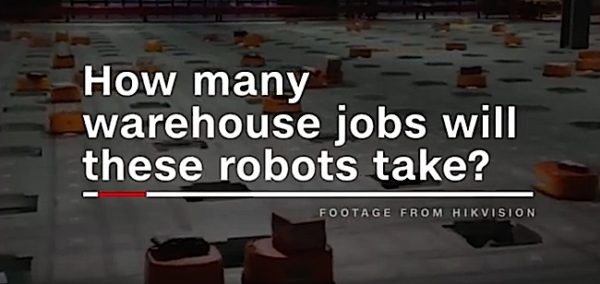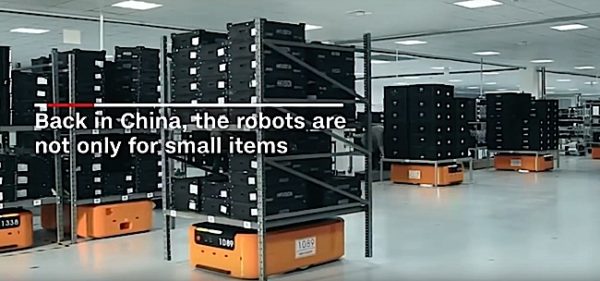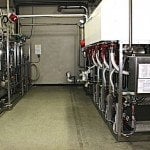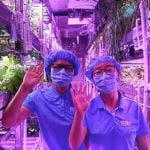As technology advances and prices soar, jobs are increasingly becoming automated, replacing workers at a rapid pace. From the introduction of order-taking kiosks at restaurants and self-service registers at supermarkets and grocery stores to welding and soldering on assembly lines, a growing number of jobs are becoming automated. As we see more jobs being replaced by machines, we begin to wonder if any are truly safe.
Warehouse, distribution, and parking garage robots might be doing repetitive jobs in future:
Transformative technology
Automation has the potential to transform sectors such as healthcare and finance, as well as affect portions of nearly all jobs in one way or another. While it will not likely result in a complete overhaul of any particular industry, it will significantly impact a large percentage of jobs across the board.

The main factor in determining whether a job is at risk of becoming automated is whether it is more cost-effective to have a human or a machine to perform it. In addition to the initial cost of investment, machinery requires maintenance as it becomes worn, upgrades as and alterations as new techniques emerge, etc. Additionally, the decision to implement automated technology to replace human workers may result from a desire for better quality work with fewer errors.
Jobs most susceptible to automation
According to recent studies, the jobs that are most susceptible to automation based solely on technical considerations are those in food service, retail, and manufacturing. The most accurate way to determine the potential for a job to become automated is by analyzing work activities rather than occupations.
Predictable physical work, such as welding, food preparation, packaging, assembly, and manufacturing has a relatively high chance of becoming automated.

Unpredictable work, such as construction, forestry, and farming are not easily replicated by technology. Therefore, these types of jobs are safer, at least for the time being.
Data collection and processing have the potential for automation, since computers are able to increase the scale and quality of these activities with an accuracy not easily replicated by human intelligence. A majority of companies have implemented automated data mining and invoice processing and delivery.
Advisers, traders and agents are safe — for now
Financial advisors, stock traders, and investment bankers depend on their intelligence and wit to perform their jobs. However, much of the workforce is devoted to data collection and processing, which means the potential for automation is relatively high. Insurance agents gather customer information, underwriters verify the accuracy of records, securities and financial agents prepare contracts, and bank tellers verify the accuracy of financial data. Mortgage brokers spend up to 90 per cent of their time processing applications. The majority of these tasks can be automated, while few of them cannot.

Mangers, planners and creative jobs are safe — for now
The most difficult jobs to replicate with technology are those involving management, expertise, decision making, planning, and creativity. Even some of the tasks performed by doctors and nurses have the potential to be automated. These jobs include administering non- intravenous medications such as anesthesia, reading radiological scans, information gathering, etc. Although the potential for automation may be high, job replacement is not a certainty. Feasibility of implementation, cost effectiveness, efficiency, human relations, and a number of other factors all play into the decision. Each employer ultimately must weigh the risks and rewards according to their own needs, preferences, and willingness to sacrifice manual labor in exchange for technological advances and lower costs.
































